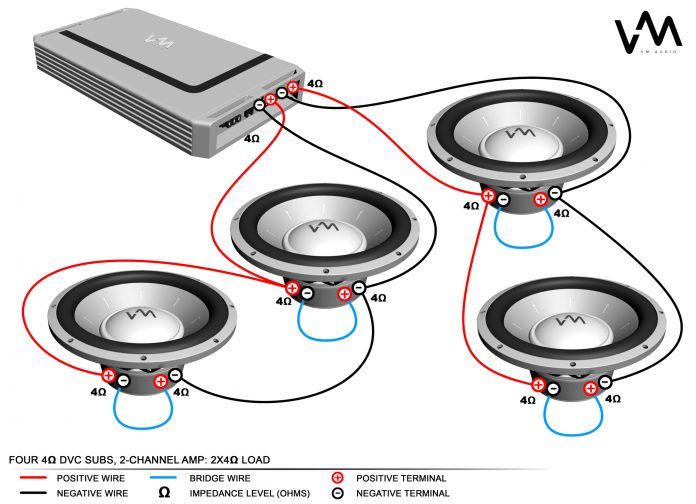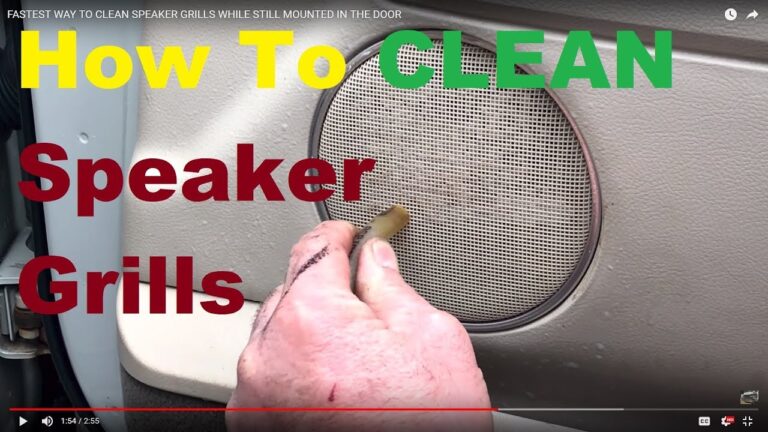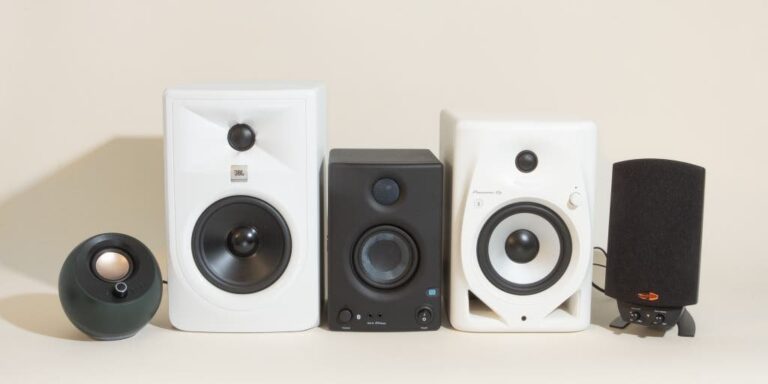Can Speaker Wire Go Bad? Understanding Potential Issues
Can speaker wire go bad? Many people often wonder if the speaker wire they have been using for years will eventually wear out or lose its effectiveness. The short answer is yes, speaker wire can go bad over time, but there are several factors that contribute to this. In this article, we will explore the reasons behind speaker wire degradation, how to identify signs of a deteriorating wire, and what steps you can take to prevent or fix the issue. So, if you’ve been experiencing any audio troubles lately, this article will provide you with the insights you need. Let’s dive in!
Can Speaker Wire Go Bad?
Speaker wire is an essential component in any sound system setup. It’s responsible for transmitting audio signals from the amplifier or receiver to the speakers, allowing us to enjoy our favorite music, movies, and TV shows. But just like any other electrical component, speaker wire can potentially go bad over time. In this article, we will explore the factors that can impact speaker wire performance and discuss whether or not speaker wire can indeed go bad.
Understanding Speaker Wire
Before we delve into the topic, let’s first understand what speaker wire is and its role in audio systems. Speaker wire, also known as audio cable or speaker cable, is a specialized wire used to connect speakers to amplifiers or receivers.
The primary function of speaker wire is to carry electrical signals from the audio source to the speakers. These signals, in the form of electrical currents, travel through the wire and are converted into sound waves by the speakers themselves. The quality of the speaker wire can directly impact the overall audio performance and signal transfer between the audio components.
Factors Affecting Speaker Wire Performance
Several factors can affect the performance and longevity of speaker wire. Let’s explore these factors in more detail:
1. Material Quality
The quality of the materials used in manufacturing the speaker wire plays a significant role in its overall performance. High-quality speaker wire is typically constructed using oxygen-free copper (OFC) or silver-plated copper. These materials offer excellent conductivity and minimal resistance, ensuring optimal signal transfer.
On the other hand, lower-quality speaker wire may use aluminum or copper-clad aluminum (CCA) conductors, which are less efficient conductors due to their higher resistance. This can result in signal loss and potentially impact audio quality.
2. Wire Gauge
The wire gauge refers to the thickness of the speaker wire. Thicker wires, denoted by lower gauge numbers, generally have lower resistance and can carry more current. This is especially important for longer cable runs or higher-powered audio systems.
Using the appropriate wire gauge for your specific setup can help minimize signal loss and ensure efficient transmission. It is crucial to follow the manufacturer’s recommendations or consult a professional when selecting the right wire gauge for your audio system.
3. Installation and Wear and Tear
The way speaker wire is installed and the general wear and tear it experiences can also impact its performance over time. Here are a few aspects to consider:
- Proper insulation: Speaker wire should be adequately insulated to prevent any short circuits or interference. Damaged insulation can lead to signal degradation or even electrical hazards.
- Distance and routing: Longer wire runs or excessively twisted, bent, or tightly routed wires can introduce resistance and affect signal quality.
- Physical damage: Speaker wire can get accidentally cut, pinched, or damaged during installation or while moving audio components. These physical damages can disrupt the signal path and cause issues.
It’s essential to handle and install speaker wire with care to minimize the chances of physical damage and preserve its performance.
4. Environmental Factors
The environment in which the speaker wire is installed can also contribute to its degradation over time. Here are a few environmental factors to consider:
- Humidity and moisture: Exposure to high humidity or moisture can corrode the conductors and degrade the wire’s overall performance.
- Temperature extremes: Extreme temperatures, such as excessive heat or cold, can affect the wire’s insulation and conductive properties.
- Chemical exposure: Certain chemicals or pollutants present in the environment can cause corrosion and damage to the wire over time.
When installing speaker wire, it’s crucial to consider the environment and take appropriate measures to protect the wire from these factors.
Can Speaker Wire Go Bad?
Based on the factors discussed above, it is possible for speaker wire to go bad over time. However, it’s important to note that speaker wire generally lasts for many years without significant degradation if properly installed and maintained.
Here are some scenarios where speaker wire may go bad:
1. Physical Damage
If the speaker wire sustains physical damage, such as cuts, pinches, or severe bending, it can disrupt the signal path and negatively impact audio quality. Physical damage may occur during installation or when moving audio components. Inspecting the wire for any visible signs of damage and replacing it if necessary can resolve this issue.
2. Corrosion and Oxidation
Exposure to high humidity, moisture, or chemical substances can cause corrosion and oxidation of the wire’s conductive elements. Corroded wires have increased resistance, leading to signal loss and degraded audio quality. Regularly inspecting the wire’s connectors and cleaning them if necessary can help prevent or address this issue.
3. Aging and Wear
Over time, even well-maintained speaker wire may experience wear and aging. The insulation might deteriorate, the conductors may become brittle, and the overall performance can gradually decline. If you notice a significant decrease in audio quality or encounter issues with signal transmission, it might be worth considering replacing the speaker wire.
4. Upgrading Audio System
When upgrading your audio system or speakers, you may need to consider replacing the speaker wire to match the new equipment’s requirements. Higher-powered audio systems or speakers with different impedance levels may demand a different wire gauge or quality to ensure optimal performance.
While speaker wire can go bad over time due to physical damage, corrosion, aging, or the need for an upgrade, it typically lasts for many years without significant issues. Taking proper care during installation, avoiding physical damage, and protecting the wire from environmental factors can help preserve its performance. Regular inspections and maintenance can also ensure optimal audio quality and signal transfer. If you notice any significant audio degradation, it may be worth considering replacing or upgrading your speaker wire to enhance your overall listening experience.
Frequently Asked Questions
Can speaker wire go bad?
Yes, speaker wire can go bad over time due to various factors such as wear and tear, environmental conditions, and poor handling. Here are some frequently asked questions about speaker wire going bad:
What causes speaker wire to go bad?
Speaker wire can go bad due to several reasons such as corrosion, exposure to moisture or extreme temperatures, physical damage, or poor quality materials used in its construction. These factors can deteriorate the wire’s conductivity and affect the overall sound quality.
How can I tell if my speaker wire has gone bad?
You can check for signs of a bad speaker wire by inspecting its physical condition. Look for any frayed or damaged sections, signs of corrosion, or loose connections. Additionally, if you notice a decrease in sound quality or intermittent audio issues, it could indicate a problem with the speaker wire.
Can a bad speaker wire affect sound quality?
Yes, a bad speaker wire can significantly impact sound quality. When speaker wire deteriorates or gets damaged, it can introduce resistance, causing signal loss or distortion. This can result in reduced audio clarity, lower volume levels, or even a complete loss of sound.
Does using low-quality speaker wire increase the chances of it going bad?
Using low-quality speaker wire can increase the chances of it going bad. Inferior materials or poor construction can make the wire more susceptible to damage from environmental factors or wear and tear. It’s recommended to invest in high-quality speaker wire to ensure better longevity and audio performance.
How can I prevent speaker wire from going bad?
To prevent your speaker wire from going bad, it’s essential to handle it with care and ensure proper installation. Avoid bending or twisting the wire excessively and protect it from moisture or extreme temperatures. Additionally, using high-quality wire and regularly inspecting it for any signs of damage can help maintain its longevity and performance.
Final Thoughts
Speaker wire can indeed go bad over time due to a variety of factors. Exposure to moisture, physical damage, and oxidation can all degrade the wire’s performance and overall quality. Poorly made or low-quality speaker wire may also deteriorate more quickly. It is important to regularly inspect and maintain your speaker wire to ensure optimal sound quality. If you notice any signs of damage or deterioration, it might be time to replace the wire to maintain the best possible audio experience. In conclusion, speaker wire can go bad, but with proper care, you can enjoy high-quality sound for longer periods.






